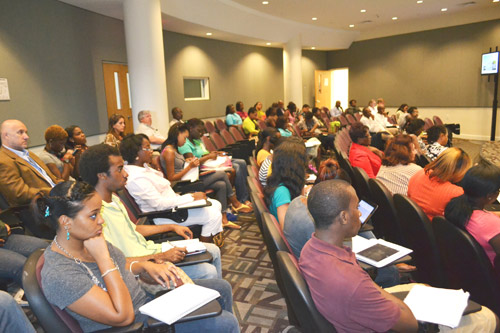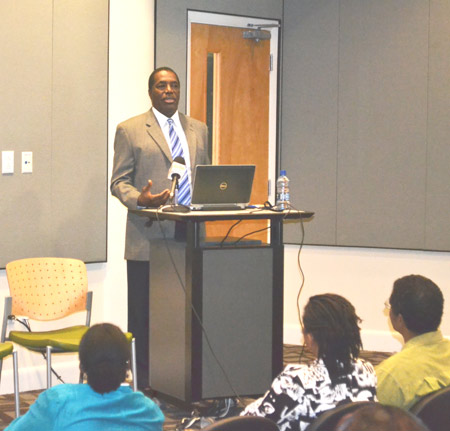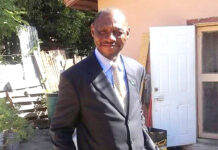
Nassau, Bahamas – A University District: one that thrives off domestic investment; where tax incentives drive entrepreneurship; home to 20 percent of The College’s student population and existing government buildings are converted to modern university facilities. Is it a far-fetched dream? Not if Associate Professor of English at The College of The Bahamas Dr. Ian Strachan has his way.
“The government should create a “University Zone”. Within this zone, domestic investment should be committed to acquiring properties for the future use of the university. Entrepreneurs should be able to receive tax incentives to enhance and expand their businesses and make them more attractive to the university community or to establish businesses targeted at the same. And government must incentivize corporate/private philanthropy,” he said.
An alumnus of The College, Dr. Strachan envisions The University Zone extending from Bay Street in the North, with Nassau Street and Thompson Boulevard as the main artery. It would be bounded on the south by the Tonique Williams Darling Highway and hedged by Marcus Bethel Way and Farrington Road in the west and Baillou Hill Road in the east.

“Our goal should be to have at least 20% of our students living in the zone. Imagine for instance if we acquired the two hotels that stand at Nassau Street and Bay and converted them to campus apartments? We can also create incentives for landlords to supply apartments to students within the zone at special rates either through subsidy or incentives,” Dr. Strachan explained.
He and many others in the College community continue to share their vision for the impending University of The Bahamas, the transitional destination of The College of The Bahamas. His recommendations of how the university can drive sustainable economic growth were presented to the University Transition Secretariat (UTS), the team charged with facilitating the collaborative discussions on how the University will come into force.
A recently held University Transition Symposium at The College’s Harry C. Moore Library and Information Centre provided the platform for interested persons to submit proposals to inform the transition process.
For instance, Dr. Llewelyn Curling, Mechanical Engineering and Technology Professor submitted recommendations for a participatory and democratic model of university governance. He examined various governance structures with bi-partite and tri-partite features and proposed the creation of a University Senate with representation from various constituents including faculty, staff, senior administration, students and the wider community. Representation would also include the unions that represent faculty, staff and middle managers respectively along with the Office of the Ombudsperson (mediator). The governance structure of the University is a key consideration.
Team Leader of the UTS, Professor Olivia Saunders, speaking on behalf of College Council Chairman Mr. Alfred Sears, said it is his hope that one of the ways in which the institution will remain dynamic and energized is through the process by which the long sought goal of becoming a university is realized.
“The process which the Secretariat is using is a deliberate exercise to elicit the brilliance and genius resident within the College community and from the reports of the Secretariat, the College community is responding accordingly,” she said. “Some of the intriguing points raised in these initial faculty and staff consultations show a sensitivity to students and the needs of our students that is refreshing.”
Four working groups are gathering vital information that will help to chart the roadmap and envision the character of the university. There is also a deliberate effort to engage the students in the process both through representation on these working groups and through direct consultations.
In 2002, the Government of The Bahamas announced its intention that The College of The Bahamas should become a University. In May 2012, the Minister of Education, Science and Technology Hon. Jerome Fitzgerald affirmed the government’s commitment to the establishment of the University. The College Council is now proceeding towards the realization of The University of The Bahamas by 2015.







